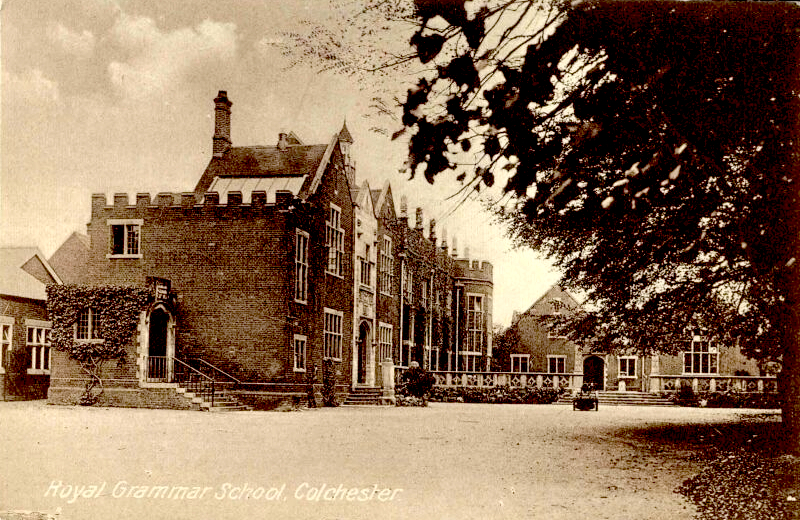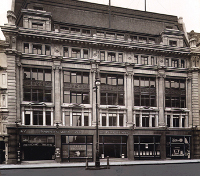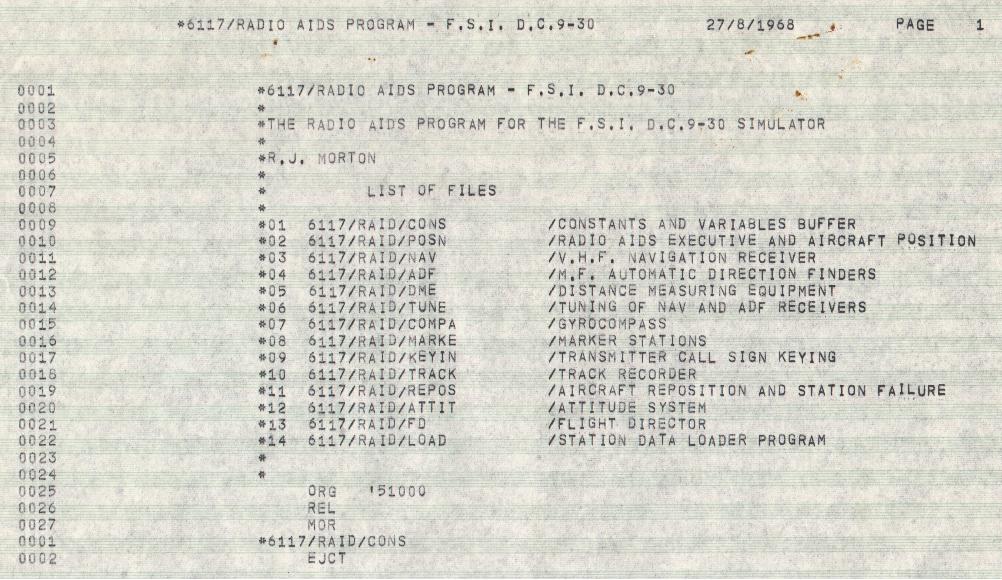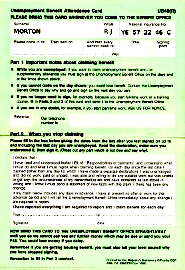
Ch11: Footnotes
Freedom Illusion
Democracy
Exploitation
Profit and Tax
Citizen or Subject
Public Ownership
Personal Worth
Authority
Human Society
Omnipotent Cretins
Parable of Cows
My Disclaimer
Imaginary Friend
My Ancestry
Politics
Throughout all my writing so far, I have been destructively critical of all mainstream political options and schools of thought. Consequently, in the context of this book, I feel I must now state my own history and clarify my present position regarding political belief.
I am a British subject with a full mix of Scottish, Welsh, Irish and English ancestry. I was born in the middle of the Second World War. My father was in North Africa. He was a Major with the Royal Engineers. I lived with my mother in the house of her parents: my maternal grandparents. Their house was in the leafy suburbs of a small satellite town of Manchester. I used to walk the short distance up a dirt track to the main road to meet my grandfather from the bus at night. I must have been about 3 years old. I remember that shortly afterwards, he didn't go to work any more. He retired in September 1944. The war was still raging. My father was still away. I remember the air raids. We all had to rush down to the Anderson shelter in the garden in the middle of the night.
My grandfather was a kind person but strong-willed. He read a lot, especially from two periodicals, whose issues I noticed gradually accumulating along the shelves of a bookcase in the corner by the fire. One of those periodicals was called Practical Wireless, a magazine which carried articles on radio construction. Once retired, my grandfather pursued his hobby of radio, constructing receivers not only for medium wave broadcasts but also for the short-wave bands. He always included me in his activities and we spent hours in his garage workshop while he soldered the wiring in his radio receivers. I also watched apprehensively as he scaled trees in the garden to string up short-wave receiving aerials. He also loved his garden in which he had a greenhouse for tomatoes and beds outside for vegetables and flowers.
My grandfather never talked to me directly about politics. He did, however, mention moral principles in connection with situations and circumstances with regard to events that occurred within our immediate lives. Much later in life, I realised that the things he said related to principles of social justice and fairness. I suppose they must have had a definite formative influence on my young mind. My grandmother was a very passive person. She was of the same mind as my grandfather. My mother rarely said anything. She seemed to be lamenting how my birth, at this most inopportune time in 20th Century history, had scuppered her career in the Civil Service.
Much later, around the ages of 8 to 11, I used to visit my grandparents a lot during school summer holidays. Every Thursday, they drove to a town called Bolton, which had an amazing market. You could buy anything from vegetables to ex-government radar sets and car parts. Sometimes my grandfather and I would call on a bed-ridden war-disabled radio amateur, whose call sign was G3MCR. His equipment was mounted in a floor-to-ceiling rack beside his bed.
 I used to sit during the journey in the back of their little Morris 8 car, which they called Myrtle. Without a car radio, they used to punctuate the journey with infrequent songs. I distinctly remember that one of their favourites was The Red Flag by Jim Connell. At the time, to me it was just a song. It was to be many decades before it dawned on me that their attraction for this song carried enormous political significance.
I used to sit during the journey in the back of their little Morris 8 car, which they called Myrtle. Without a car radio, they used to punctuate the journey with infrequent songs. I distinctly remember that one of their favourites was The Red Flag by Jim Connell. At the time, to me it was just a song. It was to be many decades before it dawned on me that their attraction for this song carried enormous political significance.
It was around this time that I sneaked quick little reads at my grandfather's periodicals on his bookshelf. There I learned that the other journal was a somewhat hard-line Socialist magazine.
In the late summer of 1945, my mother announced to me that "daddy" was coming home. She was excited and so were my grandparents. I suppose, as a child, I simply drank in the group euphoria and played along with it. So I too became excited, although the concept of "daddy" was somewhat nebulous to me. I had no idea who or what "daddy" was. However, it was not until I had turned 4 that I saw my father for the first time. One day, at lunch, there was this additional person at the table. A big strong fit man sitting eating a meal with us. "This is daddy", said my mother. He looked at me. I looked at him. No facial expressions.
The encounter was strange. I was quite confused. I have to be blunt. There was no immediate affinity. This stranger seemed very aloof and devoid of normal emotion. I suppose it is not surprising. He had just been through years of mental trauma. The instant deaths and dismemberments of friends and colleagues. No certainty about the next day, the next hour, the next second. He had a brain wound above his left eye and a neat notch cut out of the top of his nose, carved by an all-too-close German machine gun bullet. He was 30 years old.
My father needed a job. Before the war, he had started preparing for a career in town and country planning. He applied for jobs in local authority planning departments. First we moved to a place called Arnold in Nottinghamshire. Then to Chorley in Lancashire. Then to Walkden in Lancashire, which was my father's birthplace. Although we lived in Walkden to be near family roots, my father's job was as a deputy planning officer in Accrington, about 20 miles further north. I had first gone to school in Chorley, but only for a term. Then I was sent to Worsley School, a well respected school, which was affiliated to Worsley Church. Worsley School purveyed a very British Conservative ethos. I was 5 years old.
Apart from rigorous mechanical teaching of the proverbial 3 R's, the curriculum served up by Worsley School was a steady diet of mainstream religion mixed inseparably with the glories of the British Empire and Commonwealth. There was a full school religious assembly each morning. This was usually presided over by the headmaster, Mr. Potter. About once or twice a term, however, the assembly was conducted by the Vicar of Worsley Church, with which the school was affiliated. Our notions of the glories of Empire were given a power-boost every so often by ageing self-styled voluntary peripatetics, who gave what were essentially geographic talks to the upper school. I remember one of these as a Commander Parkington, an ex-Naval type who seemed to embody the very epitome of British sea power. Conservative to the core.
I never met my paternal grandparents. My father's father died some years before I was born. My father's mother came on the bus to see me as a new-born at the home of my maternal grandparents. She died on the bus on the way home. So I never knew her. My father was considerably younger than his 4 siblings. Consequently, to me, they seemed more my maternal grandfather's generation than my father's. His eldest brother was chief engineer of a power station. His second brother was a school headmaster. His third brother was a self-employed taxi driver and his sister was a vicar's wife.
 They were all very conservative, establishmental and imperialistic in their outlooks on life, the world and society. They were knowledge and achievement snobs and were very academically competitive, an ethos which they ingrained forcefully in the minds of their children (my cousins). My much younger parents, I always felt, must have been under enormous induced pressure to produce equally high-achieving children.
They were all very conservative, establishmental and imperialistic in their outlooks on life, the world and society. They were knowledge and achievement snobs and were very academically competitive, an ethos which they ingrained forcefully in the minds of their children (my cousins). My much younger parents, I always felt, must have been under enormous induced pressure to produce equally high-achieving children.
To my paternal relatives, wealth did not seem to be counted as an achievement. They counted only academic qualifications and professional or social position as worthwhile achievements. They seemed to disdain those who got rich through business or trade. The only acceptable kind of work with any link to commerce was as a graduated engineer or physicist working for a large nationally known corporation. One of my cousins became a mechanical engineer, who worked for Rolls-Royce, involved with research into growing jet engine fan blades as single metallic crystals.
I was not to be the high achiever my parents wanted. I failed my 11+ examination and so could not progress from Worsley School — which was a primary school — to attend a State Grammar school. When I left Worsley School, we moved to Blackburn, Lancashire. Blackburn was close to Accrington where my father was the Deputy Planning Officer. He paid fees for me to attend the very well recognised Queen Elizabeth's Grammar School in Blackburn — which was again a very Conservative institution. There I worked very hard and passed the 13+ examination. This allowed me to stay at the school without my father having to pay fees any more. I spent two years and one term at that school.
After that first term of the third year, my father managed to get a Chief Planning Officer position at Chelmsford in Essex. We moved south. We first lived in a small house in Braintree. Then, my mother saw a 1½ acre plot of land for sale in Witham, which my parents bought. Upon this they had a house built to my father's own design.
 I was able to get a place at Colchester Royal Grammar School (CRGS). This was the best I could have wished for. It necessitated a two-way 16-mile bus trip each day, which was tiring but well worth the inconvenience. Having described my previous schools as Conservative and very Conservative, I think I should describe CRGS as ultra Conservative. It certainly complied with the ethos of my paternal relatives.
I was able to get a place at Colchester Royal Grammar School (CRGS). This was the best I could have wished for. It necessitated a two-way 16-mile bus trip each day, which was tiring but well worth the inconvenience. Having described my previous schools as Conservative and very Conservative, I think I should describe CRGS as ultra Conservative. It certainly complied with the ethos of my paternal relatives.
I developed quite a few good friends there. One was the son of a vicar. One was the son of a police officer. One was the son of the Harwich harbour master. One was the son of an Army colonel. Two of them were amateur radio freaks like me. We were all on the science-side of the sixth-form curriculum. However, I had two other friends (whose fathers' occupations I do not know) who were on the classics-side. I remember spending many break times and lunch hours discussing philosophy and other interesting subjects with them.
It is strange, therefore, as to why — in this ultra-Conservative environment — I should start to become something of an intellectual rebel. It was not a deliberate conscious act on my part. It was something that simply took place inside my mind. I found myself with an unignorable inner burden to question what most just accepted. I was not alone. There were a few others like this. Its roots were my increasing awareness of the moral and logical inconsistencies between the biblical texts, the Anglican religion and the socio-political stance at home and abroad of the ex-imperial power, within whose jurisdiction I had been enveloped throughout my life so far.
 The Conservative curriculum, of which my whole education to date had been composed, presented the Holy Bible, The Anglican Religion, English Culture and the British State as being inseparably inter-twined. Like four species of vine or mycelium bound together in one gigantic Gordian knot. The State ruled by force. The Church ruled by fear. Culture ruled by illusion. The Ancient Text imbued each with the stamp of divine credibility. It was a Gordian knot that I felt duty bound to unloose.
The Conservative curriculum, of which my whole education to date had been composed, presented the Holy Bible, The Anglican Religion, English Culture and the British State as being inseparably inter-twined. Like four species of vine or mycelium bound together in one gigantic Gordian knot. The State ruled by force. The Church ruled by fear. Culture ruled by illusion. The Ancient Text imbued each with the stamp of divine credibility. It was a Gordian knot that I felt duty bound to unloose.
Conformingly singing hymns, chanting psalms and reciting collective prayers in morning assembly started to make me feel hypocritical. What was happening to me? I had to analyse. The one thing that my inner being forced upon me was to be honest about my personal beliefs. There was something about the ingrained ethos of society — as manifested in its Conservative religious rituals and its socioeconomic behaviour — that conflicted with my natural inner moral sense; my conscience.
On the one hand, I had found myself to be part of a society, which actively promoted the right of privileged people to live in a cradle of wealth created by the ruthless exploitation of both their fellow countrymen and, even more so, the peoples of vassal nations. On the other hand, my inner conscience burdened me with the natural truth that it was wrong for one sentient being to exploit another. Here lay an irreconcilable conflict. My inner conflict with the ethos of the State was clearly a political issue. But the State and its ethos were for me, at that time and in that place, inexorably inter-twined with — and uniquely manifested as — the rituals of morning assembly.
My vacuous participation, in the State-sponsored religious rituals of morning assembly, inductively declared my approval and condonance of how the State behaved. It was an hypocritical act. It burdened me with a pain of guilt, which penetrated the very fabric of my conscience. I could no longer go along with it. I had to be honest with myself. I could not simply skip morning assembly. So I began timidly to remain silent during hymns, psalms and prayers. It was then I began to notice a few other boys — of whom I knew but did not know — who were also standing silently. I was not alone.
My conscience had forced me to reject the socio-political status quo. Within the society in which I lived, culture and politics were inextricably inter-twined with religion. By consequence, in what was purely a collateral effect, I also rejected religion. I became a staunch atheist. For me, religion became the passive casualty. The rejection of religion was essentially the only thing, on which I could get a handle, for expressing my disillusionment with establishment politics and culture.
After finishing the sixth form at CRGS, I took a year out as an electrical apprentice while I studied to get a better grade in A-level Maths. During that year, I didn't think much about religion, politics or culture. Then I spent a year at the Welsh College of Advanced Technology in Cardiff. There, immersed in student society, my disillusionment with the status quo hardened into much-voiced nihilistic opinions. I failed the first year exams. I went home.
 I was reprieved by being accepted for a degree course at The Polytechnic, Regent Street, London W1. There, I met colleagues of every diverse persuasion regarding politics and religion, from every flavour of Christianity to every flavour of Socialism, including two very staunch Communists. There, was born my marathon 14 year self-imposed total immersion in Christianity. I was completely sincere. In long hindsight, however, I could see clearly that my non-belief was never truly purged from my subconscious. My 3 years at The Polytechnic came to an end. I had to find a job.
I was reprieved by being accepted for a degree course at The Polytechnic, Regent Street, London W1. There, I met colleagues of every diverse persuasion regarding politics and religion, from every flavour of Christianity to every flavour of Socialism, including two very staunch Communists. There, was born my marathon 14 year self-imposed total immersion in Christianity. I was completely sincere. In long hindsight, however, I could see clearly that my non-belief was never truly purged from my subconscious. My 3 years at The Polytechnic came to an end. I had to find a job.
In discussions and debates with both Christians and Socialists, I always — without being consciously aware of it — sided automatically with the Conservative view. I felt an intellectual affinity with, and a humanitarian sympathy for, the Socialist cause. I had been a conscientious rebel against the status quo. Yet underneath, I was, in my outward being, a product of my Conservative education at St. Mark's School in Worsley, Queen Elizabeth's in Blackburn and CRGS. The rebellion, provoked by my natural conscience, was an internal thing. It was an inner world, which I had created, where the disparities and injustices of the outer world fundamentally could not exist. But this was all wrapped up in what was still a Conservative outer shell.
 I entered the world of work. First in electrical research and then in computer software. This was essentially a Conservative world. In those days of the nineteen-sixties, a good job was fairly easy to acquire, at least for anybody with a higher education. It was long before the Thatcher days of PHDs on the dole. In those days, such a ridiculous situation would have been beyond belief. I remember siding with the view that the unemployed must deserve their situation and that it could only be as a result of their own laziness. In later life I was to have this view well and truly reversed with a vengeance.
I entered the world of work. First in electrical research and then in computer software. This was essentially a Conservative world. In those days of the nineteen-sixties, a good job was fairly easy to acquire, at least for anybody with a higher education. It was long before the Thatcher days of PHDs on the dole. In those days, such a ridiculous situation would have been beyond belief. I remember siding with the view that the unemployed must deserve their situation and that it could only be as a result of their own laziness. In later life I was to have this view well and truly reversed with a vengeance.
After 10 years of working for large corporations, I even became a petty capitalist myself by founding my own software business, which, at its zenith, employed 7 other software professionals. I ran it for 15 years before terminating it gracefully without debt. It is at this time that practical circumstances smashed my outer shell of Conservatism. Its destruction was complete and irreparable. However, these very same circumstances also quickly killed any illusion that could have emerged in my mind about Socialism being a solution to the disparities and injustices of this Conservative world.
I met my wife during my time at The Polytechnic. We married a year after finishing there. My wife had a mental illness which included episodes of very disruptive behaviour, which increased in severity with the passing years. We had 4 children. One died at 3 months. I persevered with my career and coping with my wife's illness. By 1991 I could no longer cope — physically or mentally — with running my business as well as looking after my children and coping with my wife's illness. I simply had to close the business and sign on as unemployed.
This is when my real troubles began. I had only a miserable amount in 'welfare' money, supplied by the Department of Health and Social Security, on which to support my school-age and university-age children and my mentally-ill wife. Later, my wife was awarded a low rate of Disability Allowance, but that did not amount to anything significant. During my wife's disruptive episodes, which lasted anything from 6 to 18 months, I would have to endure a pre-relapse phase of 2 to 3 months, during which I would be able to grab little or no sleep.
 Furthermore, during all this, I had to present convincing evidence, each fortnight at the Jobcentre, that I had been actively seeking work every day. Had I failed to convince them, my welfare payments would have been drastically reduced. I was also forced to attend Jobsearch courses every 6 months. I had to have relatives on standby in case my wife started to become unwell. By some unprecedented fortuitous miracle, a Jobsearch course never coincided with a relapse. Had it done so, I would simply have had to refuse to go, have my benefit withdrawn and resort to some form of crime or begging to feed my family. I later learned that the Jobcentre staff were instructed to pressurise and stress the long-term unemployed by all endeavour to force them to find work. I already had work — a 24 hour shift every day during crises. The last thing I needed was stress from State authorities. But the State has a lot of power to make life intolerable for those it brands as malingerers.
Furthermore, during all this, I had to present convincing evidence, each fortnight at the Jobcentre, that I had been actively seeking work every day. Had I failed to convince them, my welfare payments would have been drastically reduced. I was also forced to attend Jobsearch courses every 6 months. I had to have relatives on standby in case my wife started to become unwell. By some unprecedented fortuitous miracle, a Jobsearch course never coincided with a relapse. Had it done so, I would simply have had to refuse to go, have my benefit withdrawn and resort to some form of crime or begging to feed my family. I later learned that the Jobcentre staff were instructed to pressurise and stress the long-term unemployed by all endeavour to force them to find work. I already had work — a 24 hour shift every day during crises. The last thing I needed was stress from State authorities. But the State has a lot of power to make life intolerable for those it brands as malingerers.
All forms of authority utterly refused to recognise that there was a problem. They simply would not accept it. They offered no help. In fact, they actively hindered my own efforts to contain the situation. As such, society exhibited absolutely no sense of responsibility to provide any kind of aid against the collateral effects that my wife's extremely disruptive illness placed upon me and my children — and indeed, our neighbours. Yes, the neighbours well knew the situation.
The whole reason for the catastrophic failure of the social services was as follows. My wife's illness was of such a nature that, even at the height of a relapse, a 10-minute consultation interview would reveal nothing. It was too short a sample in which to detect anything significant. Consequently, whenever I called a doctor — having already gone through the long, tiring and stressful process of actually convincing him that it was necessary to make a house call — he would go away declaring that there was nothing wrong with her, with the strong implication that I was in danger of being prosecuted for wasting medical time.
I simply had to carry on enduring the situation until the disruption spilled over into the public domain of the neighbourhood and the police were called. The police have been the only authority that has ever been of assistance with regard to my wife's illness. The police call the doctor. Then the doctor certifies my wife as ill. That's the only way it works. Over the 37 years I endured this situation, that's the only way it has ever worked. The problem was not the incompetence (or lack of knowledge) on the part of the medics. It was their arrogance. Their intellectual conceit that only they knew, while I, who was present with the situation 24 hours a day 7 days a week, knew nothing. And society unequivocally acknowledges the "professional" assessments of the medic and brands me an idiot and a liar.
The social and medical services provided by government are essentially a Socialist product. They, together with private corporations, form part of the hybrid socio-economy which has come into being under alternating Conservative and Labour governments. On the one hand, private corporations do not provide secure economic stability for the individual. Even today, my daughter, who has an MSc in Human Ecology, is hard pressed to find steady employment. For the generic individual, capitalism doesn't work. On the other hand, for somebody in dire need to receive help from an organ of the State like the health service, his need must be of a kind that appointed "professionals" are able to detect and recognise. If they can't, no help is given. Instead comes official disapproval, condemnation and hindrance. For the individual with an unrecognised difficulty, Socialism doesn't work either.
Notwithstanding, people in general still look unquestioningly to the private corporation as the means of turning their labour into their needs of life. They still blindly and implicitly trust the word of the professional. They still trust the organs of State welfare and healthcare. I have been disillusioned by both. I learned the hard way that neither Capitalism nor Socialism can create or sustain a fair and just society. So what can? The clue was my neighbours. They knew my situation. They could have vouched for the truth of what I said. But their words are not accredited either: not against a medical professional. But suppose they were. Suppose the people who had the power to make decisions were people who knew me day to day rather than aloof professionals or faceless bureaucrats. Suppose it were members of my anthropological community who decided whether or not my needs were genuine.
So, perhaps the answer is a socio-economic system based on community rather than on private corporation and public bureaucracy. Etymologically, a socio-economy based on community would be called Communism. Had I been missing something all these years? I investigated Communism. I read in fine detail and pondered every paragraph of the 1845 Communist Manifesto, a Soviet-printed booklet of which one of my Communist friends at The Polytechnic had given me all those years ago. To aid my understanding of it, I even re-wrote its awkward 20th Century rambling English in a more modern style. But I saw the same flaw in Communism that I had seen in Socialism. It is the notion of collective ownership. In any real implementation, this always reduces itself to the control of the use of resources by the single head of a vast bureaucracy, which is even more effective than a private corporation at arbitrarily excluding the individual from the means of turning his labour into his needs of life.
In April 1994, after 3 years of unemployment and looking after my wife and family, I became increasingly angry and frustrated with society's attitude to my circumstances. Initially, as an attempt to relieve my frustration, I began to write about my circumstances and experiences. I had an old IBM PS/2 55 computer left over from my software business. I opened its native word processor program and started to write. And continued to write. Throughout the writing process, I was always thinking: looking for a possible solution to my problematic circumstances.
The next year, 1995, saw what was effectively the birth of the Internet. The embryonic Internet became accessible to commercial service providers. Thus it became accessible to the general public. In 1996, while attending one of those useless Jobcentre courses in Cambridge, I was thus able to spend my days in Cambridge Central Library, where free Internet access was provided. I used it to "look for work" and also for general research for my writing. In 1997, I rapidly learned HTML (Hyper-Text Markup Language) and the Java programming language. In April 1998, I scraped together enough money to get dial-up Internet access and web space. I was now ready to mount a web site.
I quickly designed a home page for myself and transcoded my word processor based articles to HTML. Thus, from April 1998 I began building my web site, on which, even today in December 2013, I am still working full time. It has been the means and the catalyst for crystallising my thoughts and to design a socio-political structure in which nobody can ever be denied the means of turning their labour into their needs of life.
After becoming steadily less stable throughout the latter 1990s, my wife began a catastrophic relapse in August 2000. I was to have practically no sleep for two whole months while trying vainly to contain a 24/7 crisis situation. Throughout this traumatic period, psychiatric medical staff were seeing her regularly and perceived nothing. They seemed to think that I was making a malicious attempt to get her put away for no good reason. I was fortunate in that I was not required by the Jobcentre to attend any courses during that period.
My elder son, who was still living at home at the time, was not so fortunate. He had a job, which had taken him great effort to acquire because he had learning difficulties. During my wife's two months relapsing, he too got practically no sleep. This eventually took its toll. He simply became too tired, sleep-starved and exhausted to get himself to work. Sometimes he didn't know if he was awake or dreaming. He "failed" to turn up for work. He was sacked.
Since the medics refused to recognise the problems with his mother, the Jobcentre refused to pay him any welfare, or credit his National Insurance payments because "he had deliberately stopped working". This, of course will affect his pension in later life. After some time, the Jobcentre reluctantly instated welfare payments, but subjected him to intense pressure and threats of welfare loss if he did not shape up and get another job.
In early 2001, all this trauma and pressure took its toll on my son. He had a nervous breakdown and was admitted to mental hospital. He returned home in the autumn and eventually found another job. But by early 2002, I found that I was finally becoming unhinged. After 37 years of these difficulties, I began to lose focus. My mind began to side-track fanatically in one direction then another.
At this time, it seemed suddenly to dawn on the health professionals that the family carers of the mentally ill might need some form of respite occasionally. I was interviewed by somebody called a Carers Assessment Social Worker. She assessed that I needed an immediate respite — like starting tomorrow. She tried to get funding, but was refused. She asked if there was anywhere — with a relative or a friend — where I could go immediately. I thought of my daughter, who lived and worked in Berlin.
I don't know where the money came from for my ticket, but I found myself on a plane for Berlin. I stayed with my daughter and her partner at their apartment in East Berlin. It was a welcome rest. They took me to see the sights of Berlin, including the Reichstag building, the TV tower and the Berlin Wall. I remember being in an extremely weird state of mind. My thoughts were all over the place. My mind seemed to be engaged in heavy background processing about society, social philosophy, politics, human relationships.
When I returned to the UK, I felt a new page had been turned. I was on a new trajectory. The year from mid-2002 to mid-2003 is somewhat fuzzy. I remember tagging along with a singer friend I had met at a Jobcentre course on his tour of the UK performing Elvis Presley songs on stage. I came back down to Earth again in about June 2003.
Since its inception, in April 1998, my web site has continued to grow. By June 2003, it had become quite substantial. People had been sending me encouraging comments by email from all over the English-speaking world, and occasionally from non-English-speaking countries. On the 19th of June 2003, I received a very interesting email from a lady in Brazil. She was intrigued by my articles relating to socio-economics. We corresponded on all kinds of topics for 6 months. During that time, we arranged that I should visit her in Brazil in January 2004. My mother paid for my air ticket out of money that my father had left when he died in April 2003.
The planning of this trip and the whole idea of visiting this lady in Brazil was something in which my conscious mind did not seem to be involved. It just happened. My children were all grown up and had left home. Yet the idea of leaving my mentally ill wife was anathema to me. Up until the relapse of the year 2000, it would never have even entered my mind. I did not hate or blame my wife for her illness. Her illness was not her fault. Notwithstanding, somehow, my subconscious mind knew that I had reached my physical and mental limit. Deep down, I knew that I could never survive into old age coping with more of these relapses. Certainly not with the disbelief and hindrance I had experienced from the authorities over the past 37 years.
Consequently, on the 30th of December 2003, I found myself, as if entirely on autopilot, packing my 88-litre Bergen, going to Heathrow airport and boarding a plane for Brazil. I spent two weeks in Brazil and returned to the UK. But the die had been cast. I was not going to stay in the UK. I was going to return to Brazil in June 2004. I found myself, again as if completely on autopilot, gracefully closing my affairs in the UK in preparation for emigrating to Brazil.
The Brazilian lady became my firm friend. She had a high grade in the Brazilian Civil Service and a good salary. She wished to be my benefactor with the purpose that I should continue writing freely, without the stress of living under the British welfare benefits system. I left permanently for Brazil in June 2004. The Brazilian lady and I became inseparable life companions. She has kept her promise. She has cared for me above and beyond all possible expectations.
For me, away from the pressures of the UK, a new much clearer vision began to emerge as to how people could live together in a society in which exploitation and disparity had no part. I began to see that Socialism was simply a reaction against the effects of Capitalism on the individual members of the working majority. I saw Capitalism and Socialism as simply two sides of the same coin.
Socialism thus depends on Capitalism for its very existence. And this is so, whether Capitalism comprise a plethora of private enterprises trading through a free market, or an integrated State-orchestrated command economy. In both cases, the individual is but a hapless cog in a giant machine. The joke called "democracy" notwithstanding: the individual has no control whatever over his own destiny. The political and economic elite decide if he shall or shall not be afforded the means of turning his labour into his needs of life. And they will only afford him these means if, when and how it suits their ends.
What is it that enables a small elite to hold the majority of mankind to ransom for their labour? What is it that gives them the power to decide who shall work and who shall not; who shall receive reward for their labour and who shall not? What empowers them to be able to decide if, when and how I shall work; if, when and how I shall receive my necessities of life? It is their exclusive control of all terrestrial resources.
 The only way to purge human exploitation from the Earth, and the poverty and disparity it creates, is to dispossess the elite minority of their control of our rightful shares of the planet's resources. If they do not control access to the Earth, they can't command our labour. To each of us must be returned — by inalienable right — control of the economic use of his fair share of the planet. With the present planetary population, this would give each man, woman and child on the Earth the direct economic control of two hectares (about five acres) of habitable land.
The only way to purge human exploitation from the Earth, and the poverty and disparity it creates, is to dispossess the elite minority of their control of our rightful shares of the planet's resources. If they do not control access to the Earth, they can't command our labour. To each of us must be returned — by inalienable right — control of the economic use of his fair share of the planet. With the present planetary population, this would give each man, woman and child on the Earth the direct economic control of two hectares (about five acres) of habitable land.
Of course, each need not necessarily use his portion of the Earth directly. Children are unable to do this anyway. He may opt to integrate his portion in some kind of collective endeavour. But he is still — by inalienable right — its economic owner. It is to him that its rent is payable. Others may be its direct users. But it is his decision as to who shall use it, when and how. Only upon this essential base can a just egalitarian society be founded and sustained. Only then can there be peace on Earth.
Hence, I am not a capitalist: I do not advocate systems of law which facilitate the super-regenerative accumulation of wealth or assets by any human individual or pessoa juridica, including a public or private corporation or a constituted political State. Neither am I a socialist: I do not advocate the public (or collective) ownership of wealth or assets, which always and inevitably transforms itself into the control of all by an exigent individual. I advocate neither Capitalism nor Socialism. I am vehemently opposed to both. My political position is very different.
In 2004, my Brazilian benefactor was in the process of buying some land on which to build a futuristic farmlet in which to test my vision of a divided inheritance of the Earth. Sadly, my benefactor became the victim of a land scam and lost all the money in exchange for nothing. The experiment could not therefore take place. Time passed and I started to become too old to try again. Consequently, my mission is now merely to continue writing about my vision and publish it on this web site so that whoever might be interested may read about it.